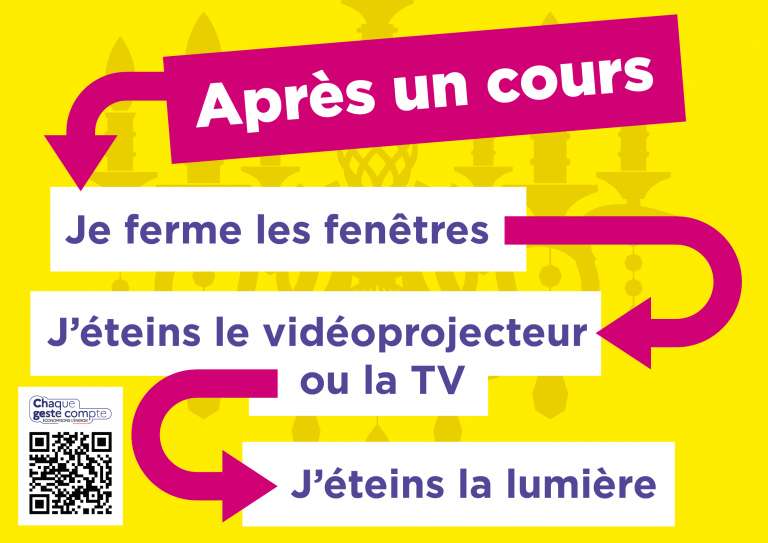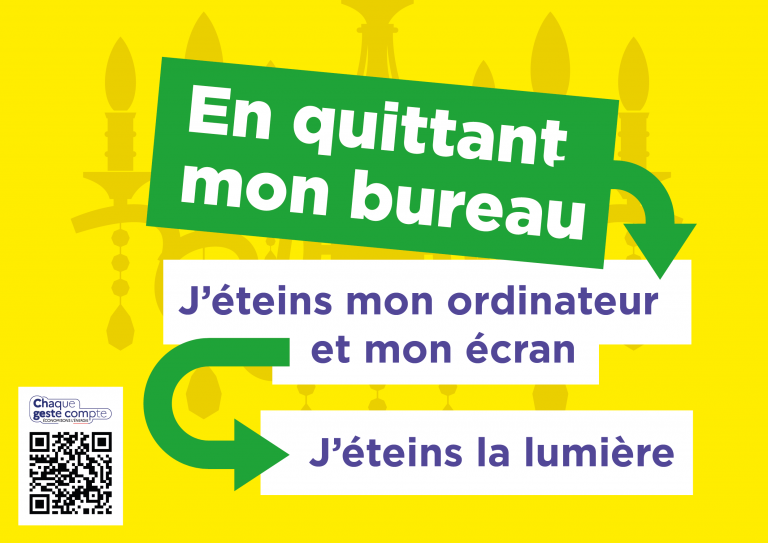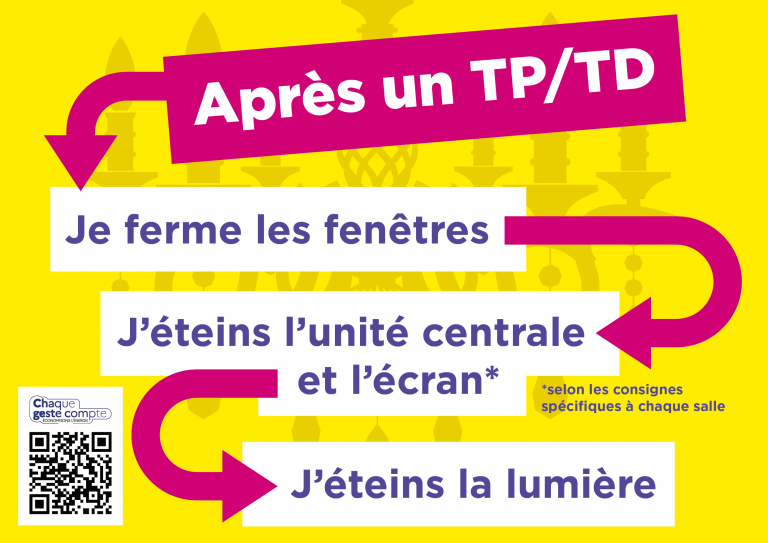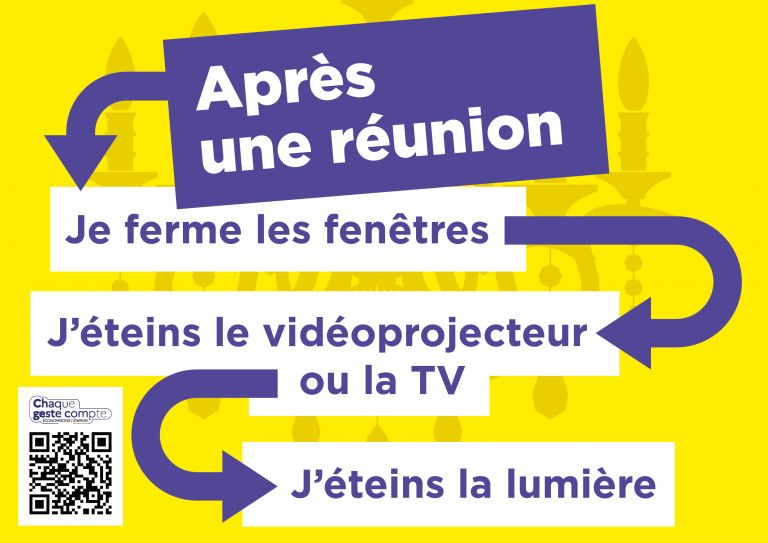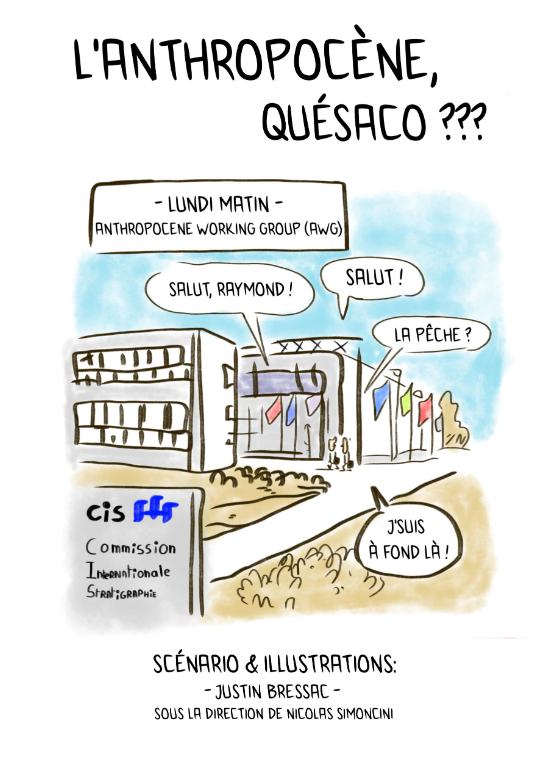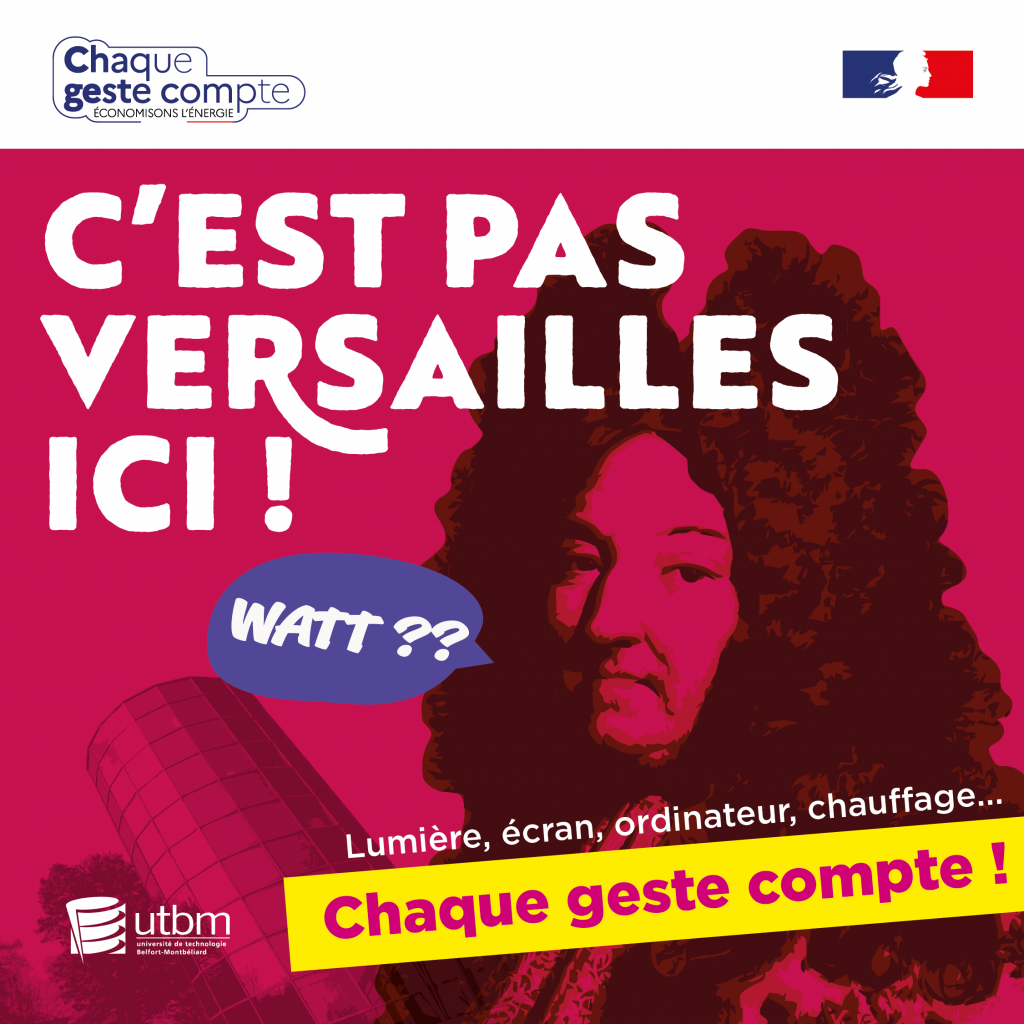Face aux défis urgents posés par le dérèglement climatique, la dégradation des écosystèmes et l’épuisement des ressources naturelle, il est impératif d’opérer des transitions profondes et rapides en actant de solutions novatrices et soutenables. Ces transitions ne sont pas seulement des options, mais des nécessités incontournables pour garantir un avenir viable pour les générations futures.
La technologie doit ainsi jouer un rôle clé, non pas en tant que solution miraculeuse, mais en tant qu’outil stratégique permettant de réaliser des avancées concrètes vers un développement soutenable. L’Université de technologie de Belfort-Montbéliard (UTBM) est profondément consciente de la responsabilité éminente qui lui incombe en tant qu’institution d’enseignement supérieur et de recherche.
Dans un contexte mondial marqué par des défis environnementaux, sociaux et économiques sans précédent, notre rôle est crucial pour former les compétences de demain, produire des recherches de pointe et incarner l’exemplarité institutionnelle.
L’UTBM intègre l’ensemble des Objectifs de Développement Durable (ODD) dans sa politique et ses actions.
Ces 17 objectifs établis par l’ONU, visent à garantir les minimums sociaux, protéger la planète et garantir une prospérité pour tous à l’horizon 2030.
Consciente de son rôle sociétale, l’Université met l’accent sur 8 ODD fondamentaux qui illustrent particulièrement ses valeurs humanistes et son expertise scientifique et technique ;
- ODD n°4 : Mettre en place de programmes accessibles à tous et innovants pour former des ingénieurs capables de relever les défis contemporains
- ODD n°5 : Garantir une égalité des chances dans les cursus et activités
- ODD 7 : Maintenir des politiques d’efficacité énergétique et de recherche de décarbonation
- ODD 9 : Soutenir le développement de technologies durables et d’infrastructures résilientes
- ODD 11 : Collaborer avec les acteurs locaux pour promouvoir des projets sociétaux soutenables
- ODD 12 : Gérer efficacement les ressources sur ses campus
- ODD 13 : Adopter des politiques de réduction de son empreinte carbone
- ODD 17 : Renforcer les collaborations internationales, nationales et locales en matière de transition écologique
L’UTBM intègre l’ensemble des Objectifs de Développement Durable (ODD) dans sa politique et ses actions.
L’UTBM intègre l’ensemble des Objectifs de Développement Durable (ODD) dans sa politique et ses actions.
Ces 17 objectifs établis par l’ONU, visent à garantir les minimums sociaux, protéger la planète et garantir une prospérité pour tous à l’horizon 2030.
Consciente de son rôle sociétale, l’Université met l’accent sur 8 ODD fondamentaux qui illustrent particulièrement ses valeurs humanistes et son expertise scientifique et technique ;
- ODD n°4 : Mettre en place de programmes accessibles à tous et innovants pour former des ingénieurs capables de relever les défis contemporains
- ODD n°5 : Garantir une égalité des chances dans les cursus et activités
- ODD 7 : Maintenir des politiques d’efficacité énergétique et de recherche de décarbonation
- ODD 9 : Soutenir le développement de technologies durables et d’infrastructures résilientes
- ODD 11 : Collaborer avec les acteurs locaux pour promouvoir des projets sociétaux soutenables
- ODD 12 : Gérer efficacement les ressources sur ses campus
- ODD 13 : Adopter des politiques de réduction de son empreinte carbone
- ODD 17 : Renforcer les collaborations internationales, nationales et locales en matière de transition écologique
Adapter le programme pédagogique
Un socle commun de formation dispensé à tous nos étudiants :
Depuis la rentrée 2023, tous nos étudiants de Tronc commun (1er cycle) acquièrent un socle commun de connaissances et de compétences sur les enjeux de transition écologique pour un développement soutenable. Quatre thématiques sont abordées, dans une approche systémique, à la fois technique et humaniste, indispensable pour faire prendre conscience de la nature des enjeux :
- le changement climatique
- la biodiversité et sa préservation
- les ressources et leur disponibilité
- la question d’une transition juste et équitable
Dès la rentrée 2024, ce socle commun prend la forme d’une UE dédiée, correspondant à 30h de cours et délivrant 3 ECTS.
- Représentation de la TEDS dans les programmes de formation :
- 15% de UEs adressent la TEDS,
- Référentiels de compétences évaluatifs intègrent les enjeux DDRS,
- L’ensemble des branches abordent le sujet.
Sensibiliser au quotidien
Actions de sensibilisation systématiques étudiants et personnels
Plusieurs ateliers portant sur le changement climatique et l’impact énergétique environnemental ont été organisés :
Différentes conférences discutant des enjeux socio-environnementaux ont été organisées. Parmi ces dernières :
- « La face cachée du développement durable ; l’exploitation minière » : 22/10/20, Aurore Stephant
- Table ronde décarbonation : 29/11/2022
- La décarbonation du bâtiment (table ronde), 28/11/23
- ” Quelles stratégies face aux risques systémiques du XXIe siècle ? “, 21/03/24, Arthur Keller, expert des « risques systémiques » et sur les stratégies de résilience
- « Pourquoi les entreprises doivent-elles s’engager pour la biodiversité ? (youtube.com) » 04/04/24, Vincent Roullet chargé de mission économie et innovation de l’Agence Régionale de la Biodiversité BFC
- 26 septembre 2024 : « Prendre notre avenir en main », les étudiants du collectif « Pour un Réveil Ecologique »
- 10 octobre 2024 : « Sauver les rivières comtoises ! », Manon Sylvant (SOS Loue et Rivières Comtoises)
- 14 Novembre : Le changement climatique va affecter vos carrières par l’association The Shifters.
- Formation annuelle inter-UT
De plus, le groupe UT (le groupement de l’UTBM, l’UTT et l’UTC) s’est engagé à organiser une formation « Ingénierie soutenable » chaque année pour son personnel en mode résidentiel : «Quelle(s) posture(s) technologique(s) au sein des UT pour construire une société soutenable »
Séminaires :
- Juillet 2022 : « la low-tech » à proximité de Compiègne à lien vers les vidéos-reportages s’ils sont encore accessibles ?
- Aout 2023 : « les frontières planétaires », à Luxeuil les Bains à proximité de Belfort à Lien vers la vidéo + ajouter des photos
- Aout 2024 : « la biodiversité », à proximité de Troyes
Contenu en cours de publication
Management environnemental
Depuis 2015 l’établissement a formalisé son système de management environnementale pour réduire ses impacts environnementaux, notamment pour réduire ses consommations énergétiques. Cet engagement est pris pour l’ensemble des sites de l’Université quel que soit les activités exercées. Il est symbolisé par la certification ISO14001. Il est important de souligner que cette démarche est possible grâce à la mobilisation de l’ensemble de la communauté de l’université et plus particulièrement avec le réseau des assistants de prévention qui relai au sein des FISE et FISA, des laboratoires et des services. Plusieurs campagnes ont été mené pour sensibiliser et inciter la communauté à changer ses pratiques quant à ces enjeux. Ce qui a notamment permis de diminuer la consommation de papier de 60% en une dizaine d’année.
Rénovation bâtimentaire
Contenu en cours de publication
Biodiversité sur les campus
L’UTBM souhaite engager une gestion plus raisonnée de ses espaces végétalisés. Depuis 2022, le site de Sevenans est en partie géré en éco-pâturage. Cette pratique de gestion, lorsqu’ elle est correctement effectuée, est dite écologique. Les avantages sont multiples :
- Ecologiques ; maintien des écosystèmes locaux, diminution de l’empreinte carbone et de la pollution sonore en évitant l’utilisation des machines thermiques,
- Économiques ; réduction des coûts d’entretien à moyen terme,
- Sociaux ; réduction de la pénibilité du poste de l’ouvrier paysagiste (notamment sur des surfaces à entretenir peu praticables),
- Pédagogiques ; sensibilisation aux modes de gestions écologique.
p
Transport
Les trois sites de l’UTBM sont facilement accessibles par des moyens de mobilité douce.
- Bus
Campus de Belfort et Sevenans : utiliser le réseau Optymo
Campus de Montbéliard : utiliser le réseau évolity
- Vélo
Des pistes cyclables, très majoritairement séparés de la route, passent également devant les sites ou à quelques centaines de mètres seulement. Il y a des abris-vélos sur les trois campus.
Exemples d’itinéraires :
> Campus de Belfort depuis Belfort centre-ville : https://maps.app.goo.gl/kTwwh9r3wCnkyUCQ7
> Campus de Sevenans depuis Belfort centre-ville : https://maps.app.goo.gl/sVDBkXYUqTcZthmm9
> Campus de Montbéliard depuis Montbéliard centre-ville : https://maps.app.goo.gl/qWsm8kekw1FjwzyZ6
Pour les courageux cet itinéraire joindre les campus de Belfort à Montbéliard en passant par Sevenans : https://maps.app.goo.gl/EcUFnJw1uyykksbZ9
- Covoiturage
Evidement le covoiturage est encouragé à l’UTBM ! Sur le site de Sevenans il existe des places matérialisées qui sont réservés aux voitures avec plusieurs personnes dedans.
Les étudiants de l’AE de l’UTBM ont signé une convention de partenariat avantageuse avec Karos (application de covoiturage domicile-travail). L’application permet de faciliter les déplacements en covoiturage de tous les membres de la communauté de l’UTBM, et est subventionnée par les collectivités locales. Il faut se référer à l’application mais à titre d’exemple :
Un trajet <30km en covoiturage jusqu’à, ou au départ de, un des sites de l’UTBM est gratuit pour un/les passager(s).
Le conducteur, sur le même trajet, est rémunéré 2€ par passager.
Parce que la cohésion sociale est un aspect essentiel des transitions à venir, l’UTBM mène de longue date une politique sociale ambitieuse, tournée vers la qualité de vie au travail, l’inclusion et l’égalité des chances.
Attestant de cette conviction, l’UTBM est certifiée ISO 45001 depuis 2019. Cette norme ISO porte sur les systèmes de management de santé et sécurité au travail », elle permet à la fois un pilotage opérationnel et stratégique et assure aussi un engagement dans une démarche d’amélioration continue, notamment via un suivi par des indicateurs préétablis. Dans ce cadre, un dispositif a été mis en place pour signaler les risques de santé et sécurité au travail, qu’ils soient physiques ou psychosociaux. Une cellule d’écoute a également été créer pour suivre et orienter les personnes victimes de violences sexistes et sexuels.
De plus, depuis 2022 et ce pour une durée de 4 ans, l’UTBM a conclu d’un accord Qualité de Vie et de Conditions de Travail (QVCT). Cette démarche a pour objectif d’améliorer le bien être des salariés sur leur lieu de travail tout en le conciliant avec la performance globale de l’établissement. En outre, l’établissement s’appuie sur des chargés de missions sur des enjeux humains clés : égalité homme/femme, racisme et antisémitisme, handicap. Plus récemment l’UTBM a rédigé son schéma directeur et sa charte du handicap.
En 2024, un nouveau plan d’égalité professionnelle à destination des étudiants et du personnel a été acté pour une durée de 3 ans. La dimension « égalité des chances » a été très fortement renforcée, une partie du plan lui est spécifiquement dédiée. Ce dispositif a pour objectif de proscrire les inégalités entre individus durant leur carrière professionnel ou de leur parcours académique.
L’Université de technologie de Belfort-Montbéliard (UTBM) se distingue par son engagement à offrir une vie étudiante riche et épanouissante. La formation d’ingénieur, exigeante et rigoureuse, nécessite un équilibre optimal entre études et activités extrascolaires. C’est dans cette perspective que l’UTBM a formalisé et adopté son schéma directeur de la vie étudiante courtant l’année 2024. Il vise à créer un environnement varié et stimulant, favorable à la fois à la réussite académique et au développement personnel et professionnel des étudiants.
Plusieurs projets en lien avec les enjeux DDRS sont financés chaque année par la Contribution à la Vie Etudiante et de Campus (CVEC) de l‘établissement.
On peut citer parmi ces derniers :
> https://www.wecount.io/mon-empreinte-etudiante (optimisé pour les étudiants)
Liens utiles
